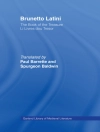In the ‘VOLTAIRE – Premium Collection, ‘ readers are treated to a rich anthology that showcases the multifaceted brilliance of one of the Enlightenment’s most influential thinkers. This collection features a selection of Voltaire’s sharp wit, literary prowess, and incisive social commentary across genres, including essays, philosophical tales, and plays. Through his distinctive use of satire and allegory, Voltaire critiques dogma, religious intolerance, and the folly of absolute power, making his writings remarkable not only for their historical significance but also for their timeless relevance to contemporary discourse on reason and freedom. François-Marie Arouet, known as Voltaire, was a profound advocate for civil liberties and a critic of French society’s rigid hierarchies. His tumultuous life, marked by exile and imprisonment, reflects his tireless pursuit of justice and truth. Growing up in a society rife with censorship and oppression, Voltaire’s experiences fueled his commitment to challenging authority and championing Enlightenment ideals, a theme that resonates throughout this collection. This premium edition is a must-read for anyone interested in the philosophical underpinnings of modern thought and the enduring impact of literature as a vehicle for social change. Voltaire’s engaging prose invites readers to rethink their own positions on religion, politics, and human rights, making this collection an essential addition to any serious literary library.
About the author
Voltaire, the pseudonym of François-Marie Arouet (1694-1778), was a towering figure in the Enlightenment, influential in shaping the intellectual landscape of 18th century Europe. A prolific writer, historian, and philosopher, his oeuvre encompassed a vast array of genres, including plays, poems, novels, essays, and historical and scientific works. Voltaire’s sharp wit, erudition, and advocacy for civil liberties, freedom of religion, and free trade left an indelible mark on literature and social thought.
His most famous work, ‘Candide, ou l’Optimisme’ (1759), remains a seminal text in Western literature, providing a satirical critique of the optimistic philosophy of the day while entertaining readers with its picaresque structure. In ‘Zadig’ (1747) and ‘Micromégas’ (1752), Voltaire demonstrates his narrative prowess within the framework of the conte philosophique, blending storytelling with philosophical inquiry. The ‘VOLTAIRE – Premium Collection’ embodies the essence of his literary legacy, offering a comprehensive view of his style—marked by incisive humor and a subtle yet powerful use of irony. His writings not only reflect the intellectual currents of his time but also continue to offer poignant insights into human society and the condition of the individual.












